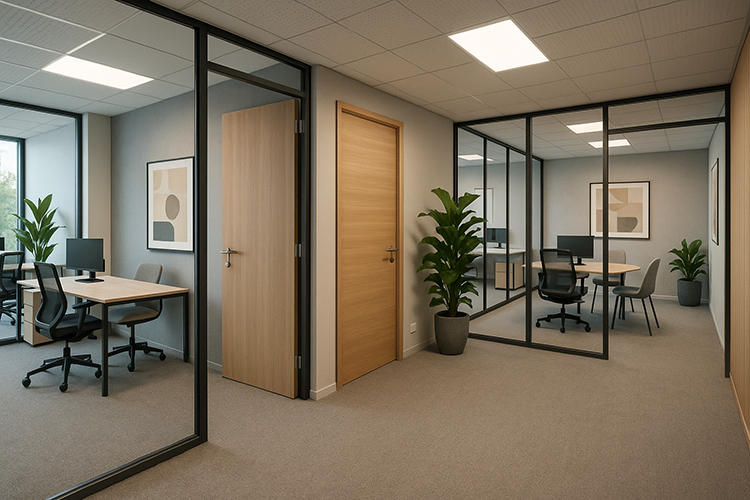Bratislava’s Office Market Adapts as Demand for Flexible Workspaces Accelerates
A new wave of flexible office concepts is transforming Bratislava’s business landscape, as developers respond to shifting work habits and growing tenant expectations for adaptability, convenience, and shorter lease commitments.
Alto Real Estate has introduced its Compact Offices model, a fresh addition to the capital’s office market designed to serve both small companies and independent professionals. Located in City Business Centre 3 and 5 and Digital Park, the spaces offer areas from 17 to 120 square metres and can be reconfigured according to tenant needs. Leases are available from just one year, with all costs included in a fixed rate. Shared amenities such as meeting rooms, kitchens, and underground parking are part of the package, reflecting a growing trend toward service-integrated office environments.
“We’re designing spaces that work for tenants of all sizes, allowing them to grow or downsize as needed,” said Christian Gálik, Leasing Manager at Alto Real Estate. “More businesses are seeking flexibility without compromising on comfort or quality, and we believe this approach meets that demand.”
Bratislava’s office market has evolved rapidly in recent years as global and local operators adopt flexible workspace models. HB Reavis, for example, has rolled out Qubes at Nivy Tower, combining traditional offices with short-term serviced space for growing teams. Similarly, myhive Vajnorská has developed mycowork, a hybrid solution for freelancers and companies that prefer smaller, ready-to-use offices.
International providers are also expanding. Regus continues to strengthen its presence with a network of fully equipped offices offering adaptable contracts, while Ingka Centres — known for Avion Shopping Park — launched Hej!Workstation, a coworking environment inside its retail complex aimed at professionals looking for accessible and informal work zones.
Market observers note that these initiatives reflect broader changes in workplace culture. As companies shift toward hybrid and project-based structures, traditional long-term office leases are giving way to smaller, more flexible formats. Developers are responding by rethinking layouts, introducing community-oriented amenities, and placing more emphasis on design and user comfort.
For Alto Real Estate, Compact Offices mark an evolution in how office space is offered — prioritising agility and user experience over rigid layouts. “We see satisfaction and loyalty from tenants who value spaces that adjust to their changing needs,” Gálik added.
With increasing competition and innovation among landlords, Bratislava is positioning itself as one of Central Europe’s most responsive markets for modern office solutions. The rise of flexible, service-driven workplaces signals a long-term shift toward more adaptive and tenant-focused real estate strategies.









